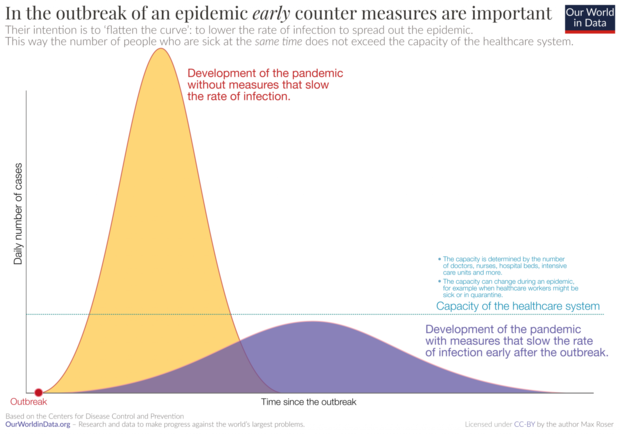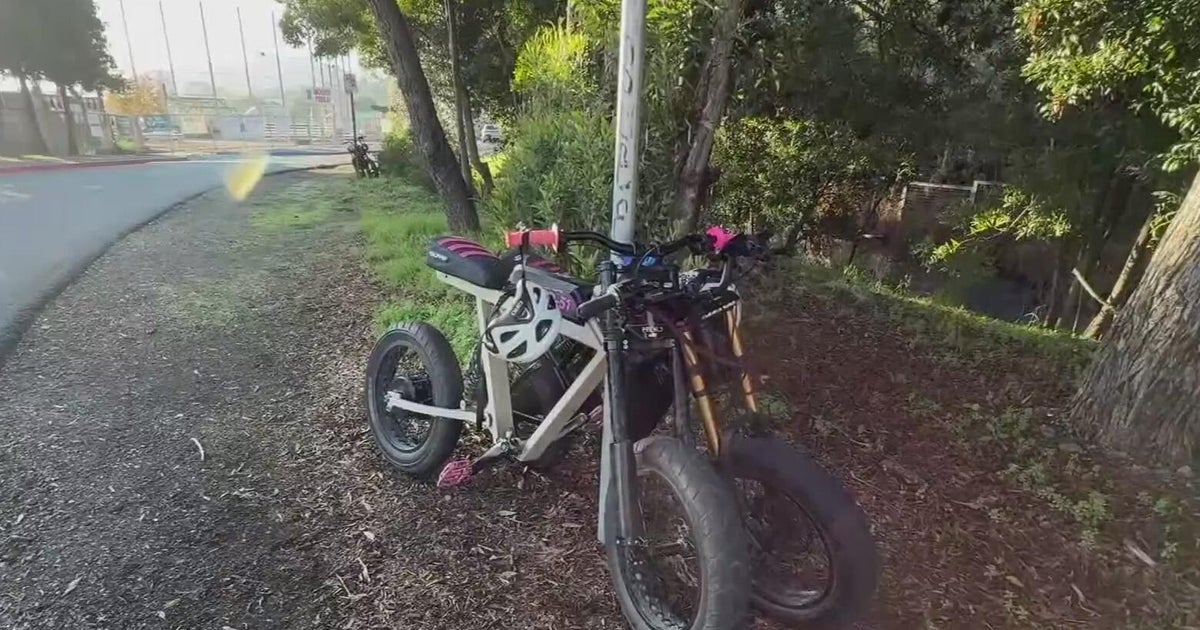Fighting coronavirus: What we can do... together
The World Health Organization has declared the COVID-19 outbreak to be a pandemic — official recognition that the virus respects no borders and now affects masses of people in countries all over the world. And there is no denying the world is changing, in painful ways. We see it in financial markets, where prices are plunging — and in supermarkets, where customers are stripping shelves bare. All driven by fear, as the number of virus cases grows with each passing day.
- COVID-19: New York's health care system contingency plans
- Inside an American coronavirus containment zone
While we may feel powerless over this threat, we are not. There are important things we can and must do — and right now.
To borrow a phrase from the war on terror, the coronavirus only has to be right once to infect us. We have to be right every time to prevent it. So, every time you cough or sneeze, use a tissue or the crook of your arm. Every time you think of it, wash your hands — as frequently as you can. Every time you can, practice "social distancing" — stay away from others during this outbreak. Social distancing is now being enforced throughout our society. Schools are closing, sporting events of every kind are being canceled. The curtain has even come down on Broadway shows as the Great White Way goes dark.
Despite our best efforts, it's likely many of us will eventually get infected by the virus, since we have no immunity to it. If that's the case, you may ask, does it really matter when we get infected? The answer is a resounding yes! And here's why: slowing the spread of coronavirus — and consequently delaying infections — can make an enormous difference in our ability to handle the pandemic.
Take a look at the illustration below, which is based on a CDC report. The yellow curve shows what happens when you do nothing. The number of infections peaks relatively quickly. This can overwhelm a health care system that is not prepared to handle such a huge number of patients. Emergency rooms and hospitals can become overloaded. We may see shortages of medical supplies — including protective gear and breathing machines — and shortages of health care workers, especially if many of them become infected. But look at the purple curve. It shows what can happen when you slow the epidemic. The outbreak is stretched out. And while it may last longer, the peak number of infections is much lower, putting less stress on the health care system and allowing better care for each patient. It also gives scientists more time to develop new treatments and vaccines.
Is there any evidence this works? Absolutely, especially when coupled with the time-proven technique of aggressive testing to find and isolate infected people as early as possible. In China, where there has been strict quarantine and social distancing in the epicenter of the outbreak, new infections have dramatically slowed. In South Korea, where health officials cleverly used drive-through testing, we're also seeing the number of new cases slow down.
And there's a history lesson from the 1918 flu pandemic. Back then, Philadelphia held a parade attended by several hundred thousand people. Soon, every hospital bed in the city reportedly was filled with sick patients. St. Louis, on the other hand, practiced social isolation and saw fewer cases.
So we have work to do, and it won't be easy, because it means changing the way we live our daily lives and how we interact with our neighbors. And we have to start now — when we can make the most difference.
One important approach is to try to protect the most vulnerable, especially people with serious medical problems such as hypertension, diabetes, heart disease, or a weakened immune system. And older people have been more severely affected than the young. In Italy, for example, there has been a dramatic spike in death rate in patients with COVID-19 who are 70 and over. Therefore, it makes sense for the elderly and people with serious medical conditions to voluntarily self-isolate now.
And here's something we need to keep in mind. We are all in this together. So even as we keep a distance from each other physically, we need to stay close emotionally. Social isolation is bad for your health!
If ever there was a time to call or video chat with friends and loved ones, it is now. And don't forget to reach out to the elderly — who may be alone and afraid.
Demonstrating grace under pressure is easier said than done. But that is this doctor's prescription for getting through this. And, if we treat each other with kindness and empathy, we will.





